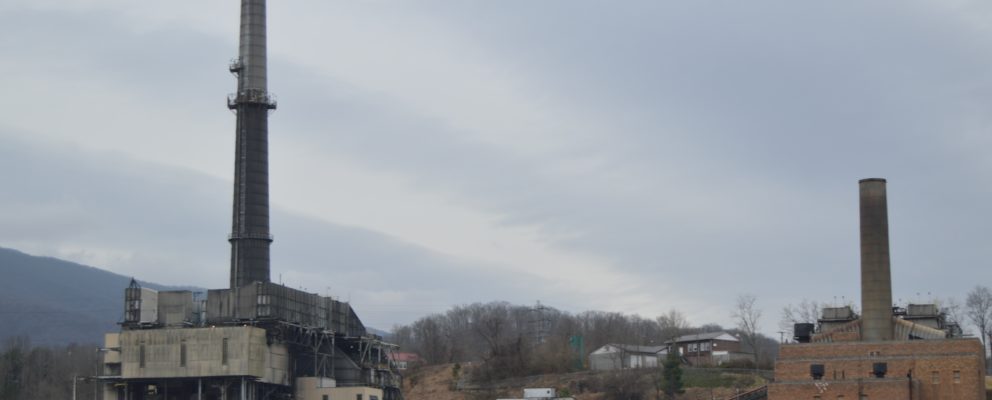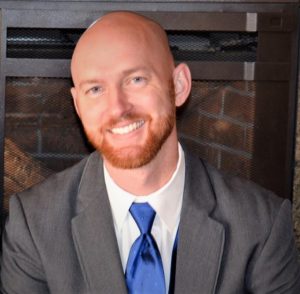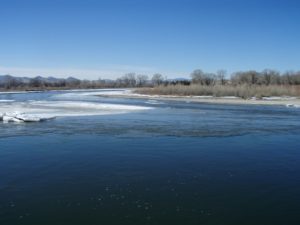Air pollution research leads CEnREP student to Montana for PERC Graduate Fellowship
With fewer teaching obligations encumbering their time, summer affords graduate students the opportunity to leap ahead with their research. Last summer, CEnREP student affiliate Casey Rozowski took his research all the way to Montana.
Rozowski, a second-year doctoral student in economics with a focus in the environmental economics field, received one of four Property and Environmental Research Center (PERC) Graduate Fellowships to study the impacts of air pollution on human health. The fellowship took Rozowski to PERC’s headquarters in Bozeman, Montana, from May to July of this year. There, he spent the summer investigating how the use of power plant emission abatement technologies affects mortality rates in at-risk populations. These at-risk populations include the elderly, the very young, and those with pre-existing respiratory-related illnesses such as asthma.
“My research from this summer investigates pollutant-specific damages,” Rozowski explains. “Most environmental regulations are pollutant-specific, but isolating policy-relevant damages from a single pollutant is challenging.”
For his work, Rozowski focused on sulfur dioxide, a pollutant generated at coal-fired power plants, and how installing sulfur dioxide-specific “scrubbers” at these plants impacts emissions, local ambient air quality, and local mortality rates.
Throughout the three-month fellowship with PERC, Rozowski worked alongside other graduate students from all across the U.S., as well as experts in natural resources, innovation, property rights, and environmental issues. He credits his co-fellows and particularly his Senior Fellow mentors, Prashant Bharadwaj (University of California-San Diego) and Bryan Leonard (Arizona State University), with providing additional perspective on his project. “PERC fellows challenged me to think hard about context and the policy-relevance of my work. My mentors helped me clarify my research question and focus on tangible outcomes,” he said.
The program not only fosters networking among the scientists and economists selected as fellows, but it also enables young professionals to establish and build upon continued relationships with PERC as they collaborate throughout the summer. Students present at two workshops to report on their findings and write a publishable paper at the conclusion of their residency. Rozowski’s PERC fellowship work culminated the paper, “Pollution and mortality: Estimating damages using pollutant specific abatement technologies.”
Says Rozowski of the experience, “PERC offered an opportunity to network with other graduate students and highly engaged faculty from all over. The workshops provided a platform for intense discussion and highly engaged feedback. Most of all, PERC offered me three months to make serious progress on my research.”
The intensive three-month fellowship challenged Rozowski to focus on his research, but the experience wasn’t all work and no play. He also spent time hiking and sightseeing around the Treasure State. Out of the office, he enjoyed taking an excursion to explore Madison Buffalo Jump State Park, an historic Native American hunting site, and Missouri Headwaters State Park.
Upon returning to campus this fall, Rozowski also presented his findings at the CEnREP Luncheon Colloquium on September 27. The Luncheon Colloquium returns on Friday, October 18, in Nelson Hall 2403, with presentations by Agricultural and Resource Economics graduate students Zhaochen Sun, Sunjae Won, and Daniyar Zhumadilov.


